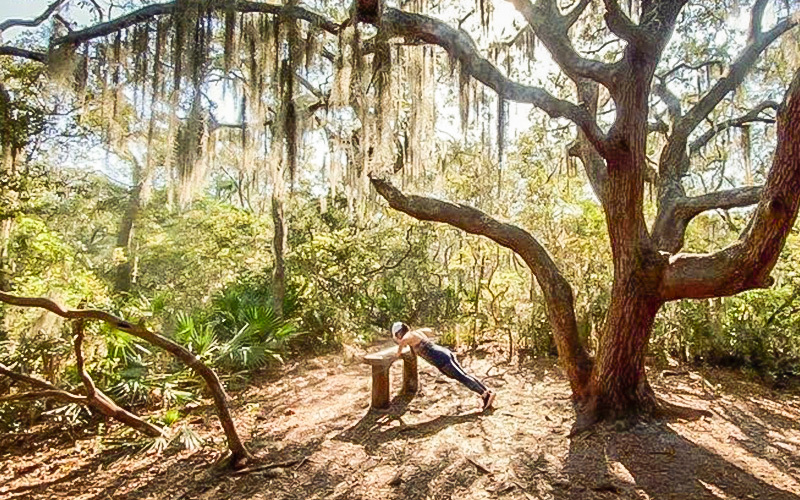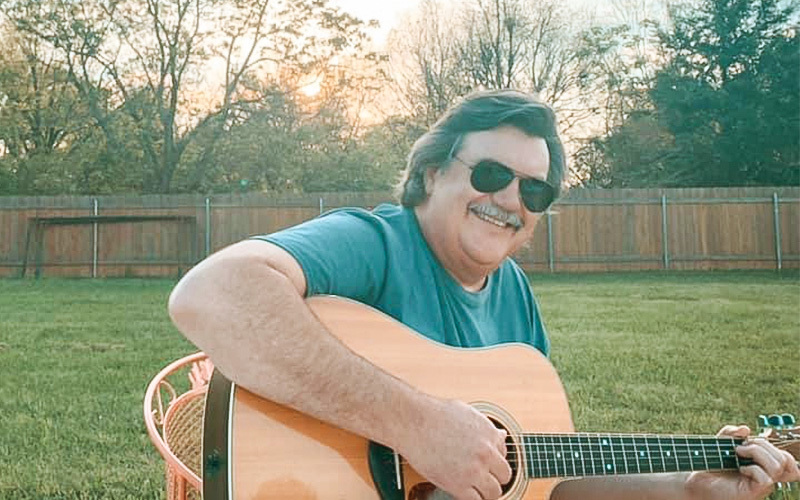When the world shut down in March 2020, there were so many unknowns. But one thing was for certain: many Americans were sent home to work for an indefinite amount of time.
With the nation facing a pandemic and stay-at-home orders, feelings of isolation, anxiety and fear could feel like major obstacles in getting through each day. Seeking comfort – whether in the form of food, watching a documentary featuring a tiger zookeeper, video conferencing with friends and family, or something else entirely – became important for mental health.
Unfortunately, some found they were neglecting their physical health.
“When you think about being at the office, you are around co-workers and you are focused. At home, you may have loved ones or be on your own, but either way, it is a different dynamic there, so it is easy to get in a rut,” explained Niki Bourque, corporate benefits administrator for Regions.
Bourque says going from being in the office five days a week to being homebound 24/7 opened the door for regular health habits to go on the backburner.
“What was once the freshman 15 may have become the quarantine 15, because at home, your favorite foods are readily accessible. Plus, we did a lot of things to make it more special, including baking treats or recreating favorite restaurant meals,” Bourque said. “The other big thing is activity – at the office, you get up to go to the copier, visit the mailroom, and check in with co-workers across the floor. Those built-in standing breaks went by the wayside.”
When it became clear the pandemic was sticking around, many Regions associates decided to face the circumstances head-on. Finding the silver lining in this forced pause helped some find themselves even healthier than before.
Finding Healthier Habits
As 2020 rolled in, Commercial Credit Services Underwriter Pete Turney realized his health was not up to par.
“My weight was the highest it had ever been, so I developed sleep apnea and experienced fatigue, body pains, swelling and high blood pressure,” Turney said. “I got up on Jan. 31 and felt awful, so I decided I had to do something. I’m okay with mortality – I could get hit by a car or get cancer, but I was self-inflicting my problems.”
Turney cleaned up his nutrition by starting on a vegetarian, soybean-based diet. He started dropping weight and feeling better. Then, COVID-19 struck.
I was not going to go back to where I was before. This was my new life path.
Pete Turney, Regions commercial credit services underwriter
“I went into the pandemic and knew it was a mental thing. So, I took advantage of the time and stayed with the diet, and eventually added exercise,” Turney shared.
Soon, though, he hit a wall.
“Sitting in front of the computer for long hours, I ate more than usual, and it was just enough to stagnate me,” Turney said. He knew the importance of getting back on track and sticking with it. “I developed the mentality that I was not going to go back to where I was before. This was my new life path.”
And it’s a successful one. Turney is down about 100 pounds.
Creating New Healthy Habits
Jacksonville, Florida-based Financial Relationship Consultant Xinran Zhao went into the pandemic with healthy habits in place. She regularly visited the gym with her husband, something the shutdown took away.
“I tried to stay positive when everything shut down. It was stressful to feel like you needed to get out of the house and knowing you cannot do anything,” Zhao said.
Zhao tackled those stressors by starting fresh habits. She adopted a new way of eating – following the Keto style of nutrition – and finding ways to get outside to get fresh air and a little physical activity.
 Xinran Zhao getting fresh air and a little physical activity.
Xinran Zhao getting fresh air and a little physical activity.
“Multiple parks closed at different stages, so we had to find different places to walk and noticed other people doing the same thing,” Zhao said, adding she also purchased accessories to make working out at home feel more gym-like.
“This time has become helpful for me in maintaining healthy behaviors,” Zhao shared.
Regaining Mental Health
As a corporate trainer for Regions’ Leadership and Development team, Don Fuller was used to being in front of people. With the new normal, he no longer had that in-person facetime.
“For the last 16 years, I spent three days a week in front of people in classes and one-on-one training, and suddenly, I had to take it online and find a new normal,” Fuller explained. “Going through that, I started recognizing that watching the news and reading social media was not having a positive impact. After a few weeks, I started realizing I was facing depression; I was miserable.”
Fuller says when he had faced similar feelings in the past, he would focus on others instead of himself. He knew he had to do the same thing now.
“The first thing I started doing was making cookies – I love to cook. I baked cookies and gave them out to members of my church; I delivered a dozen cookies to each of them with a handwritten note to let them know I was thinking about them,” Fuller said.
 To keep the walls from closing in, Don Fuller picked up his guitar and learned some new songs. He also logged in 3-4 miles of walking every morning.
To keep the walls from closing in, Don Fuller picked up his guitar and learned some new songs. He also logged in 3-4 miles of walking every morning.
When the walls of his house felt like they were closing in, he would go on long walks with his daughter that lived nearby. Soon enough, he was getting up every morning and pounding 3-4 miles of pavement.
He also chose to turn off the news and limit his social media exposure. “The mental aspect of not staying in bed and not starting my morning with negativity and doom and gloom helps.”
Finally, he found more time to be what he calls a “campfire guitarist.”
“I had sat my guitar down for a couple years and it was staring at me, so I picked it up and with the technology available now I was able to start learning songs. I would practice daily and take breaks during the workday to play for 10-15 minutes and stretch,” Fuller said. “I play all the time on weekends, and since my wife and I love live music and have missed it, I show her and my family what I learned during the week when we have family time.”
Find Your New Normal
Bourque says that if you are trying to free yourself from the work-from-home rut, consider what you can control.
“In this timeframe, so much is out of our control. What we can focus on is our physical activity, our nutrition, our time schedule at home and how to be the most productive,” Bourque says. “There is a cautious positivity these days; people are realizing that while life may not be back to normal, it is possible to have a shift in mindset and find how we can have an impact on our own health by taking care of ourselves.”